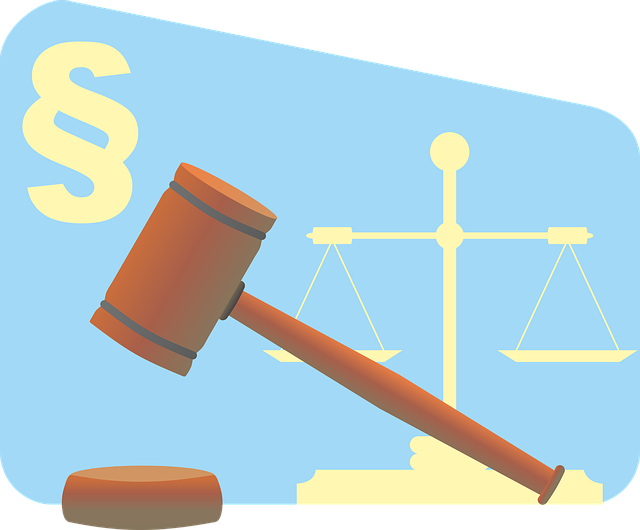Plea bargaining offers key benefits in criminal cases, providing a strategic approach to navigate legal complexities. By negotiating with prosecutors, defendants avoid indictment, secure faster resolutions, and gain control over outcomes with reduced penalties. This method streamlines court processes, reduces backlogs, and allows for tailored sentences benefiting all parties, including communities affected by crimes.
Litigation comes in various forms, each with unique nuances and outcomes. Understanding different types of litigation is crucial for effective dispute resolution. This article explores key aspects such as plea bargaining, a strategic approach that offers significant benefits in criminal cases, balancing advantages and drawbacks. We also delve into negotiation tactics for fair settlements and efficient strategies for swift dispute resolution. By the end, readers will grasp the complexities and value of these methods in navigating legal conflicts.
- Understanding Different Types of Litigation
- Plea Bargaining: A Strategic Approach
- Criminal Cases: Benefits and Drawbacks
- Negotiation Tactics for Fair Settlements
- Efficient Dispute Resolution Strategies
Understanding Different Types of Litigation
Understanding different types of litigation is crucial for anyone navigating the complexities of the legal system. From civil disputes to criminal charges, each type of litigation has its own unique characteristics and procedures. One notable approach that offers significant benefits, especially in criminal cases, is plea bargaining. This strategy allows defendants to negotiate a plea deal with prosecutors, avoiding indictment altogether. By pleading guilty to a lesser charge or accepting a negotiated sentence, individuals can resolve their legal issues more efficiently than going through all stages of the investigative and enforcement process.
Plea bargaining has an unprecedented track record of ensuring swift justice while also reducing the strain on court systems. It provides defendants with an opportunity to take control of their legal outcomes, often resulting in less severe penalties compared to a potential conviction after trial. This approach not only benefits individuals facing criminal charges but also contributes to a more streamlined and effective legal process overall.
Plea Bargaining: A Strategic Approach
Plea bargaining is a strategic approach often employed in criminal cases where both the prosecutor and defendant agree to resolve the case without going to trial. This process offers several benefits, including avoiding indictment and potentially reducing sentences for the accused. Across the country, many general criminal defense attorneys use plea bargaining as a key tool to achieve the best possible outcome for their clients. By negotiating plea agreements, defendants can sometimes plead guilty to a lesser charge or accept a reduced sentence in exchange for their cooperation with prosecutors.
This strategic approach allows for more efficient case management and enables both parties to focus on other priorities. For defendants, it can mean avoiding the stress and uncertainty of a trial while potentially gaining some control over their punishment. This method has proven effective in streamlining the criminal justice system, reducing backlogs, and ensuring that resources are allocated where they are most needed—ultimately benefiting everyone involved in the process.
Criminal Cases: Benefits and Drawbacks
Criminal cases often carry significant weight and can have profound impacts on individuals and society at large. One notable aspect that sets them apart from civil litigation is the potential for incarceration, making the process both complex and sensitive. However, within this realm, plea bargaining stands out as a game-changer, offering unique advantages. The benefits of plea bargaining in criminal cases are substantial; it facilitates quicker resolutions, reduces the burden on courts, and allows for more precise justice. This process enables defendants to avoid lengthy trials, potentially minimizing public exposure and its associated stigma.
Moreover, plea bargaining provides an opportunity for both defendants and prosecutors to negotiate a mutually agreeable outcome. In the context of white-collar and economic crimes, this strategy can lead to more tailored sentences that address specific needs. For instance, a defendant might agree to community service or financial restitution as part of their plea bargain, which can be beneficial for respective business, philanthropic, and political communities. While drawbacks exist, such as the potential for unfair decisions, the benefits of plea bargaining in criminal cases cannot be overlooked, especially when balanced against the costs of prolonged litigation.
Negotiation Tactics for Fair Settlements
Negotiation tactics play a pivotal role in litigation, offering a path to fair settlements that can benefit both parties involved. One powerful strategy is plea bargaining, which has significant advantages in criminal cases. This process allows defendants to avoid lengthy jury trials and potentially secure more favorable outcomes. By engaging in plea negotiations with prosecutors, individuals can reach agreements that reduce charges or minimize sentences. This approach not only expedites the legal process but also provides a chance for a fresh start after fulfilling the agreed-upon terms.
For those seeking a general criminal defense strategy, understanding the benefits of plea bargaining can be invaluable. While jury trials offer the opportunity to present complex cases and win challenging defense verdicts, they are time-consuming and unpredictable. Plea bargaining, on the other hand, provides a more controlled environment where both sides can reach a mutually acceptable resolution. This tactic often leads to cost savings for all involved, ensuring a quicker return to normalcy for defendants while allowing prosecutors to focus resources on other cases.
Efficient Dispute Resolution Strategies
In today’s legal landscape, efficient dispute resolution strategies are crucial for both corporate and individual clients, as they aim to navigate complex legal issues while minimizing time and cost. One such strategy that has proven beneficial in criminal cases is plea bargaining. The benefits of plea bargaining are manifold; it enables a more streamlined process compared to lengthy trials, often resulting in quicker resolutions. This approach can be particularly advantageous for those seeking winning challenging defense verdicts, as it allows for a mutually agreeable outcome where both parties avoid the rigors of a full trial.
Plea bargaining offers a practical solution by providing an alternative to the traditional adversarial system. This strategy not only benefits the legal system by reducing backlogs but also ensures that resources are allocated more effectively. For businesses and individuals alike, it provides an opportunity to resolve disputes efficiently, allowing them to focus on their respective business ventures or personal matters without prolonged legal entanglements.
In navigating the complex landscape of litigation, understanding various dispute resolution strategies is essential. From plea bargaining, which offers strategic advantages and benefits in criminal cases, to efficient negotiation tactics and effective dispute resolution methods, each approach has its own tapestry of pros and cons. By recognizing the value of these different litigation types, individuals and organizations can foster fair settlements and revolutionize their legal processes, ultimately enhancing overall efficiency in today’s digital era. The benefits of plea bargaining, in particular, cannot be overlooked as a game-changer in criminal justice, ensuring swift resolutions while balancing fairness and public safety.






